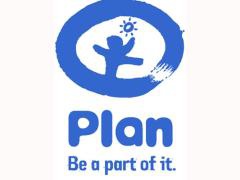Regional News of Saturday, 11 October 2014
Source: GNA
Plan Ghana launches report

Plan Ghana, a non-governmental organisation, on Friday launched the 2014 global report of the ‘Because I am a Girl’, (BIAAG) an annual publication which assesses the state of the Word’s Girl.
The report focuses on the obstacles girls encounter in their bid to contribute their quota to the socio-economic transformation of the country.
According to the report entitled: “Pathways to Power: Creating Sustainable Change for Adolescent Girls”, shows how visible and invisible forms of power over girls are reproduced and deepened through household, communities, the market economy and the state.
It said the progress of women and girls are often retarded by negative societal gender roles often assigned them which sometimes compromise their education, health, financial and psychological well-being.
Justice Avril Lovelace-Johnson, a Justice of the Court of Appeal, who launched the report, underscored the important roles women play in national development and identified lack of the enforcement of existing legal provisions to ensure their security.
According to her the rights of most women and girls are persistently violated, for a number of reasons including the fear of stigmatisation and tradition, leaving them very vulnerable because they are not fully empowered.
She said existing mechanisms must be strengthened to curb current trends of child abuses, neglect, and other forms of violence against girls, which are on the increase, to secure their future.
Mr Prem Shukla, Country Director of Plan Ghana said the 2014 report was special because it steps aside the world of the individual girl and looks more closely and critically at the world around girls and ideals that shape their identities.
He also indicated that the launch of the report was to commemorate the International Day of the Girl Child as instituted by the United Nations to reflect on the challenges encountered by girls and seek for sustainable ways of addressing these conditions.
Mr Shukla said the theme of the report therefore clearly remind stakeholders of the need for collective responsibility to create sustainable changes in all sectors of society for the growth and advancement of adolescent girls.
It reveals that there is a lot of work to be done, because in spite of the numerous campaigns and advocacies to ensure that the language of gender equality is well understood and used, the reality of continuing inequality still blights girls’ and boys’ lives.
He said it is only by focusing on changing and challenging these realities of power, could girls go forward and escape the barriers of discrimination, violence and sexual harassment.
Mr Shukla said although attitudes are very hard to change and poverty often pushes people back into stereotyping that they themselves thought they had abandoned, there is the need for collective efforts by stakeholders to support quality education for girls to ensure that the numerous gains of the Millennium Development Goals are sustained.
He said the BIAAG campaign aims at supporting at least four million girls globally and in Ghana the project is assisting about 4,000 marginalised girls from 2012 to 2016, to access and complete quality basic education or acquire vocational skills.
It also seeks to promote active participation of 4,000 girls in development through strong social networks and life skills.
Ms Harriet Ndanu, Face of ‘Because I am a Girl’(BIAAG) campaign, read highlights of the report which underscored the importance of collective action and the renewed energy around campaigning that is visible among young people, particularly young women, across the globe.
She said the report notes the fact that girls were now more aware that gender inequality is embedded in the attitudes and structures of society and must be tackled strategically and with collective force.
The BIAAG campaign, she said aims at closing the various gaps that exists among male and females especially in terms of education, health and employment.
Research for the report indicates that working locally with key power holders, identifying women leaders and active and active women’s group, supporting girl’s leadership, participation and education was key, as such actions would give them choices, freedom from violence, access to education, decent work and the stability to make decisions about their own lives.
Social media was identified as another effective tool for campaigning and shaming perpetrators of gender-based violence.










